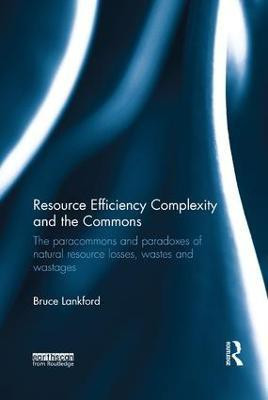Resource Efficiency Complexity and the Commons(English, Paperback, Lankford Bruce)
Quick Overview
Product Price Comparison
The efficient use of natural resources is key to a sustainable economy, and yet the complexities of the physical aspects of resource efficiency are poorly understood. In this challenging book, the author proposes a major advance in our understanding of this topic by analysing resource efficiency and efficiency gains from the perspective of common pool resources, applying this idea particularly to water resources and its use in irrigated agriculture. The author proposes a novel concept of "the paracommons", through which the savings of increased resource efficiency can be viewed. In effect he asks; "who gets the gain of an efficiency gain?" By reusing, economising and avoiding losses, wastes and wastages, freed up resources are available for further use by four 'destinations'; the same user, parties directly connected to that user, the wider economy or returned to the common pool. The paracommons is thus a commons of - and competition for - resources salvaged by changes to the efficiency of natural resource systems. The idea can be applied to a range of resources such as water, energy, forests and high-seas fisheries. Five issues are explored: the complexity of resource use efficiency; the uncertainty of efficiency interventions and outcomes; destinations of freed up losses, wastes and wastages; implications for resource conservation; and the interconnectedness of users and systems brought about by efficiency changes. The book shows how these ideas put efficiency on a par with other dimensions of resource governance and sustainability such as equity, justice, resilience and access.


